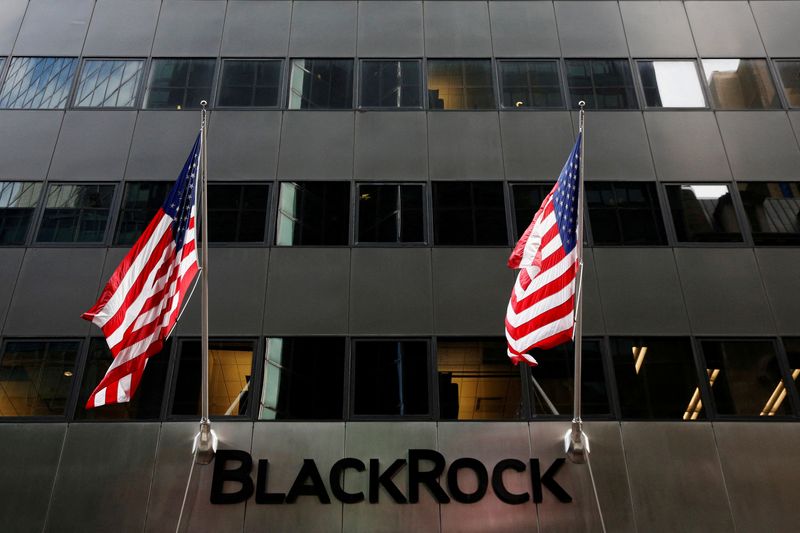
By Suzanne McGee and Ross Kerber
(Reuters) -BlackRock has asked the U.S. Federal Deposit Insurance Corporation to extend its deadline to reach an agreement on how the agency would oversee the giant asset manager’s investments in FDIC-regulated banking organizations from Friday until March 31, according to a letter the firm sent to regulators on Thursday and obtained by Reuters.
The letter is the latest move in a months-long tug of war between the FDIC and the biggest managers of index-based mutual funds and exchange-traded funds over the rules governing their passive investments in FDIC-regulated banks. In late December, Vanguard Investments hammered out terms of such a passivity agreement with the FDIC, which immediately afterward asked BlackRock (NYSE:BLK) to sign a very similar agreement by the Friday deadline.
“We are not aware of any imminent or ongoing issues that would warrant hastening the finalization of a completely new regulatory framework in a two-week period,” wrote Ben Tecmire, head of U.S. regulatory affairs at BlackRock, in the letter to the FDIC.
That is especially true, he added, since “all the banks that would be covered by your proposed agreement with BlackRock are subject to regulatory oversight by the Federal Reserve.”
In the letter, Tecmire said BlackRock wants to avoid “inconsistent and uncertain requirements” that might result from the firm’s bank holdings being overseen by multiple bank regulators.
He said in the letter that BlackRock’s understanding is that the agreement between the FDIC and Vanguard was reached only after several months of negotiation. An individual familiar with the matter said BlackRock’s attempts in the final months of 2024 to meet with FDIC officials had been rebuffed.
The FDIC did not respond to a request for comment on the letter or the negotiations.
GETTING TOO BIG?
BlackRock, Vanguard and State Street (NYSE:STT) now collectively control some $26 trillion in assets. Since the financial crisis of 2009 investors have poured money into their low-cost index funds, catapulting the three firms into the ranks of the largest owners of most large U.S. corporations.
But their size and clout have raised worries the holdings could diminish competition among the companies they commonly own. Even Vanguard’s late founder Jack Bogle voiced concern. Because of the firms’ influence on corporate governance, they also have faced political attacks on issues like their treatment of greenhouse gas emissions or workforce diversity. On Thursday, BlackRock said it plans to leave the Net Zero Asset Managers Initiative.
So far academic studies paint a mixed picture. A 2023 U.S. Federal Reserve Bank of Atlanta review for example, found “relatively little evidence” of such problems.
Some of the issues the FDIC is grappling with now have also been hashed out in front of the U.S. Federal Energy Regulatory Commission. Trade group Edison Electric Institute cautioned the FERC that its actions have the potential to hamper or delay much-needed capital investments.
However, FERC has moved at a much slower pace to consider challenges to the big stakes that the passive funds own in major utilities.
One objection is that new limits by regulators could divert investments away from portfolio companies, be they banks or utility firms.
Jeff DeMaso, who writes a newsletter for Vanguard investors, said via e-mail that regulators should “tread lightly” before putting new limits on passive mutual funds or ETFs.
“We are trying to sort through the unintended consequences of indexing and the concentration of ownership. Before (potentially) damaging that clear good, we should clearly know the problem we are solving,” he said.



